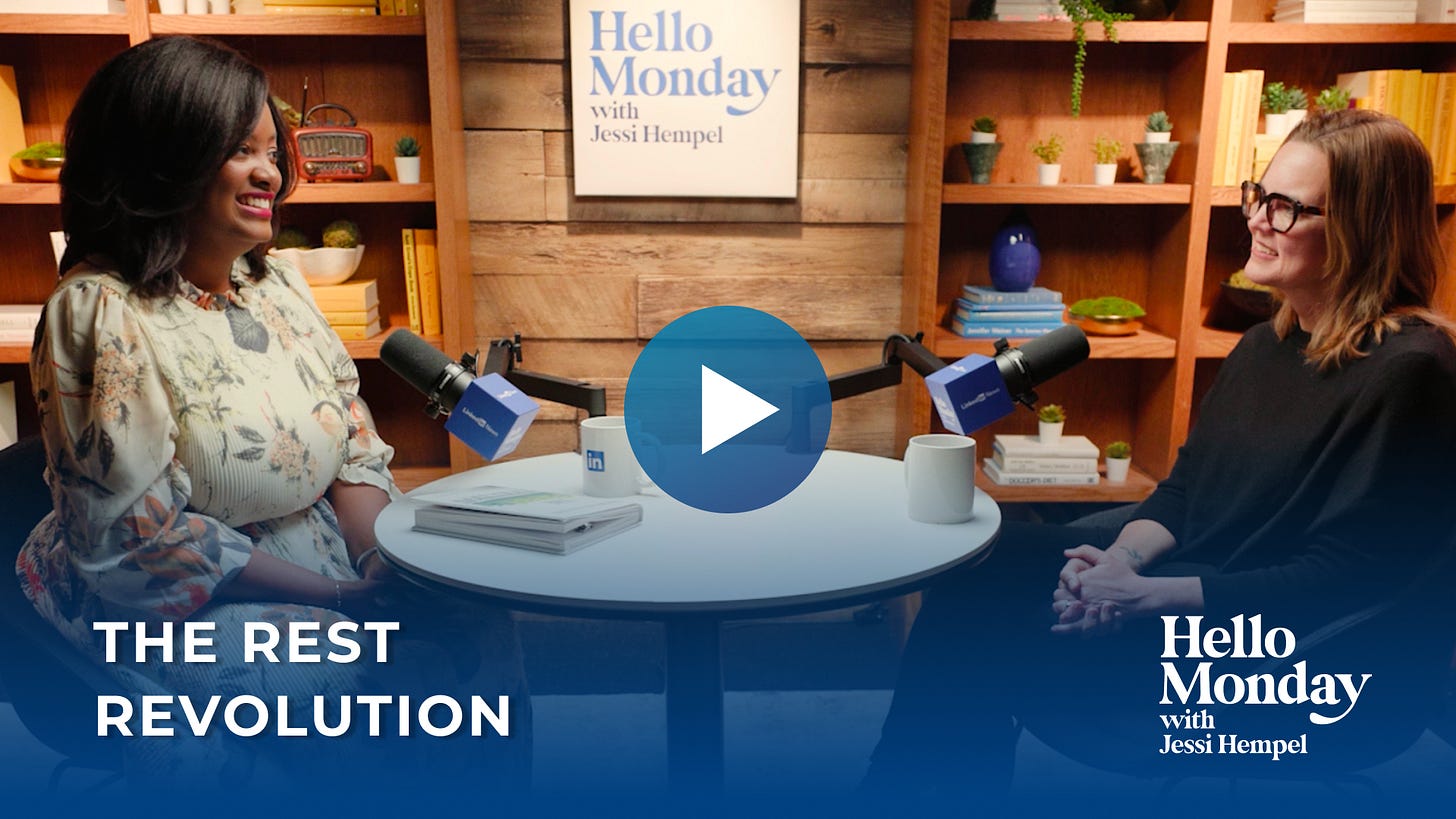Briefly, in my senior year of high school, I had a serious NoDoz habit. You know, those 200 mg caffeine pills? It was college application season. I was practicing French horn for hours a day, preparing to audition for Massachusetts’ statewide orchestra. I was secretly gay, putting pressure on myself to conform.
I found that if I just stopped sleeping, I could push myself so much harder. I could add hours to my day—and that worked out great, because it aligned perfectly with the thing everyone kept telling me I was: an overachiever.
🎧 Check us out on YouTube, Apple Podcasts or Spotify 🎧






Back then, “overachiever” was a compliment. A gold star. A fast track.
Until it became the reason why a high school administrator, Mrs. Meyers, found me in the bathroom, slumped against the wall, my chest vibrating so fast I thought I was having a heart attack. “Time to lay off the caffeine pills,” she said. And while I dropped the pills, I never dropped the pressure.
It took me decades to question that achievement-oriented mindset. I know I’m not alone. So many of us were raised to believe that our value came from our output. That rest was weakness. That burnout was just the cost of success.
But what if it’s not?
Meet Amanda Miller Littlejohn
This week on Hello Monday, I talk with Amanda Miller Littlejohn—executive coach, exceptional human, and the author of a new book called The Rest Revolution. Amanda has a story for us about hitting her own burnout breaking point. In our conversation, she shares how she clawed her way back to balance—and how we can, too. We talk about redefining ambition, reclaiming joy, and why rest isn’t just necessary—it’s radical.
If there was ever a moment for a conversation like this, it is now. The news cycle is causing my cortisol to spike constantly. Everything feels a bit precarious. Everything for which I believed I was working feels a little up in the air. Speeding up and doing more isn’t helping. It’s a time for deliberate action, a moment when conserving our energy so that we can apply ourselves to the most urgent matters is the most important thing we can do. Maybe you know this, as I do, but that doesn’t mean you’re doing it most of the time. Let’s talk about it.
One more thing I’m thinking about…
Are people bad at their jobs…or are jobs just bad?
’s newsletter, Culture Study, is worth the sign up for the occasional missive, like this one, that codifies something I’d noticed but not been able to name in culture. To wit: increasingly, gig work makes for bad jobs, and we’ve gotten the narrative wrong. We blame the people, not the work. She tracks the story of a bed frame, ordered from Wayfair, that was both beautiful and so cheap! It was cheap in part because it arrived disassembled!No problem, the new bed owner hired an assembler from another cheap online service, Angi. But you know what this assembler did not know how to do? ASSEMBLE! What followed were a series of back-and-forths with both companies in which the bed’s owner, after investing so much time the bed was not cheap any longer, got a friend to put the frame together.
I bet you’re thinking what I’m thinking: I’ve got a story like that! And I do. My mother-in-law still gets a good laugh out of the time that I hired a task rabbit to construct a knock-off of a California Closet in our bedroom and left him with the instructional manual and a flat box of about one million parts and pieces and shelves. Four hours later I came back to discover the equivalent of a cat jungle gym in our closet. Could you hang your clothes in this?
And who exactly is there to be mad at? Not the tasker, a man who didn’t speak or read English and couldn’t put this complicated masterpiece together. Not myself exactly…I just wanted a California Closet…that I could actually afford.
And maybe every piece of our economy is experiencing this fall-out. I write a lot about how I believe most white collar professions are devolving into parts work, leaving us to bill ourselves as consultants. This is one inevitable outcome of an economy in which there are not small businesses run by long tenured entrepreneurs, only mega-companies and consultants. Take note, Anne Helen Petersen: I want to read a book about this.





